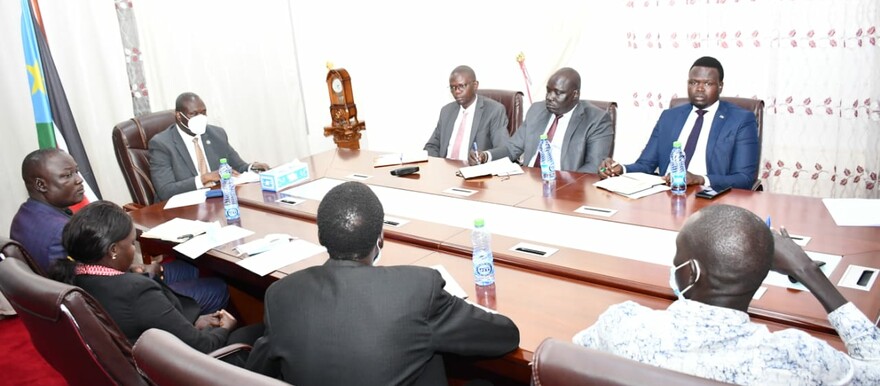South Sudan's First Vice President Dr. Riek Machar Teny on Thursday met with the Union of Journalists of South Sudan (UJOSS) in Juba to discuss youth unemployment in the country.
Machar is the head of a High-Level Committee formed in July to study youth unemployment grievances and provide a roadmap on how to permanently resolve the grievances across the country.
“I have called you as UJOSS to understand reasons for the ongoing youth unemployment unrests against NGOs across the country, and the way forward," Machar said.
He explained that his office is seeking views from media stakeholders on what role the media can play in addressing the youth unemployment issues.
Dr. Machar added that he will be meeting other youth leaders including civil society organizations, the United Nations Mission in South Sudan, and other NGOs to find sustainable solutions to youth grievances.
Speaking after the meeting UJOSS President Patrick Oyet Charles said, "This is the first time that the leadership in South Sudan at the top level is consulting the Union of Journalists of South Sudan in regards to how the media can play a role in the issue of youth unemployment and what to be done to help our young people, and what role we in the media can play to ensure that youth get the assistance that they deserve in the country."
Oyet called on the government to work with journalists to enhance the dissemination of information and provision of civic education to the public.
Machar is deputized by Vice President for Service Clusters Hussein Abdel Bagi Akol, and Vice President for Gender and Youth Cluster Rebecca Nyandeng De Mabior.
Youth from different parts of the country have recently threatened NGOs operating in their areas to evacuate for what they call 'unfair employment policies', leaving most of them unemployed.




